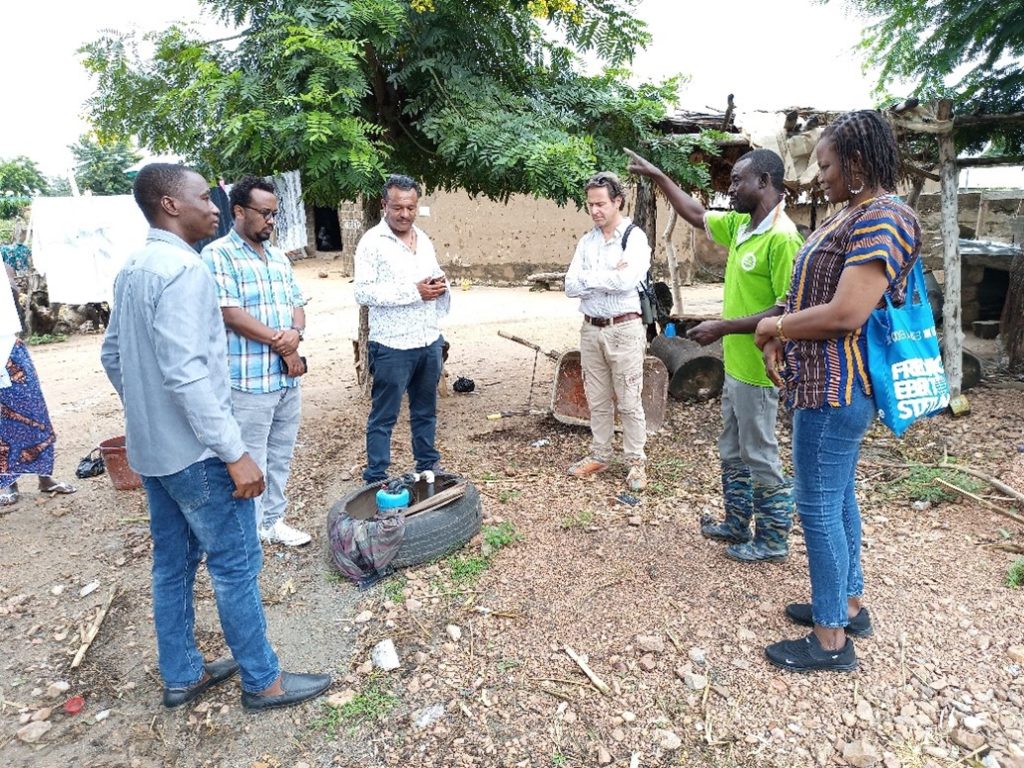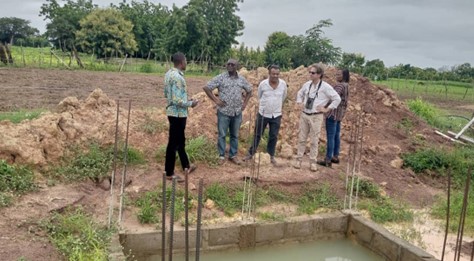by Emmanuel Obuobie and Wei Zhang
Reliance on groundwater for food production is expected to increase with climate change in many countries. In Africa, rising use of groundwater poses risks to water and food security, particularly without strong institutions to regulate and monitor use. Communities need to become more knowledgeable and active in managing their common groundwater resources. Toward that aim, partners from Ghana, Ethiopia, and the International Food Policy Research Institute (IFPRI) participated in an exchange of knowledge and experience regarding groundwater governance and irrigation in August 2022 in the Upper East Region of Ghana. Within the context of the Feed the Future Innovation Laboratory for Small Scale Irrigation project (Games to stimulate groundwater governance: An introduction and example from Ethiopia) the IFPRI-led team has been implementing game-based experiential learning interventions that aim to make the invisible groundwater resource visible by growing understanding of how groundwater behaves as a system under a variety of extraction and conservation methods. The goal of the interventions is to promote proactive management and governance of groundwater resources within communities.

To encourage further learning among groundwater-dependent irrigators in Ghana and Ethiopia, key Ghanaian and Ethiopian partners lead local implementation of the games, visiting three groundwater irrigation sites in the Gware, Babile and Kajelo communities in the Upper East Region. In each community, an irrigator shared information and experience on crops cultivated, types of groundwater abstraction structures and pumps used, depths from which water was abstracted, capital and operational costs of groundwater abstraction, as well as market-related opportunities and challenges.
Participants recognized that groundwater irrigation in Ghana and Ethiopia share many characteristics, including the semi-arid nature of the landscape, irrigation practices, plot sizes, increasing groundwater abstraction, and increased volatility in groundwater recharge due to climate change.
Differences in practices were also evident. Ghanaian irrigators access groundwater from both shallow and deep aquifers for irrigation. Abstraction from shallow, hand-dug wells is done using buckets tied to ropes or with motorized pumps, while abstraction from deep mechanized boreholes is done with electricity powered submersible pumps. In contrast, Ethiopian irrigators abstract groundwater from shallow aquifers only, using low-capacity surface water pumps powered with diesel. Wells for abstraction from shallow aquifers are similar in both countries, but the tops of Ethiopian wells are bigger in diameter for motorized pumps and to increase the depth at which water can be lifted. Ghanaian irrigators are increasingly shifting from the use of hand-dug wells to mechanized boreholes to abstract water from deeper and more reliable aquifers.

During their visit to Ghana, the Ethiopian team observed the first of a series of three stakeholder workshops aimed at reflecting on theory of change for groundwater governance and management in the White Volta Basin. These workshops brought together representatives of different sectors of society to discuss the future of groundwater management, the role of the different actors, and the conditions and opportunities which would support moving towards a common vision.
Ghanaian partners plan to visit Ethiopia in January 2023 to learn from Ethiopian groundwater irrigators and partners, thereby complementing and deepening the exchange. The Foundation for Ecological Security (FES), an Indian NGO that has been a key partner of the consortium will also contribute by sharing from their vast groundwater governance experience in India.
We would like to acknowledge and extend our thanks for our collaborators in Ghana, Emmanuel Obuobie & Margaret Akuriba, and Ethiopia, Fekadu Galew and Natnael Teka, for leading community engagement and their role in research and knowledge sharing.



